Disclosure: This article contains affiliate links. We may earn a commission from purchases at no extra cost to you, which helps our travel content.
Jakarta might overwhelm your senses at first glance – a sprawling metropolis where ancient traditions dance alongside gleaming skyscrapers. But beneath the chaos lies a cultural heartbeat that's been my unexpected medicine during a recent visit. As someone who's witnessed firsthand how traditional knowledge can literally save lives (a story involving mountain rescue and indigenous plant wisdom I'll share another time), I've developed a deep appreciation for cultural preservation through immersion. While most visitors to Indonesia's capital city stick to the standard museum routes or batik demonstrations, there's a whole universe of hands-on workshops where families can connect with Jakarta's soul in ways that Instagram filters simply can't capture. These experiences aren't just tourist activities – they're living bridges between generations, healing spaces where ancestral knowledge transfers through fingertips and creates memories that will nourish your family's spirit long after you've returned home.
Jamu Brewing: Ancient Wellness in a Modern Metropolis
The parallels between my EMT training and traditional Indonesian herbal medicine became instantly clear during my jamu workshop with Ibu Sari in South Jakarta. Jamu – Indonesia's centuries-old herbal medicine tradition – isn't just a drink; it's preventative healthcare packaged in vibrant yellow turmeric potions and fragrant ginger elixirs.
At Rumah Jamu Herbal, families gather around wooden tables laden with fresh turmeric roots, ginger, tamarind, and dozens of herbs I recognized from emergency field guides. What struck me most was watching children's eyes widen as Ibu Sari explained each ingredient's purpose – immune support, digestion aid, inflammation reducer – in terms remarkably similar to what I might tell patients.
The two-hour workshop begins with a brief history of jamu's role in Indonesian wellness before participants create two personalized remedies. My favorite was the kunyit asam (tamarind and turmeric) blend, which reminded me of the anti-inflammatory tinctures my Mi'kmaq grandmother would prepare after long hiking expeditions.
The workshop concludes with a tasting session where families sample various traditional jamu varieties while discussing how these ancient wellness practices might complement modern healthcare – a conversation that resonated deeply with my own journey bridging Western medical training and indigenous healing traditions.
While jamu ingredients are easily found throughout Indonesia, I recommend packing a digital kitchen scale if you're serious about recreating these recipes at home. The precise measurements Ibu Sari taught us make all the difference between an effective wellness tonic and simply flavored water.

💡 Pro Tips
- Book the morning session when ingredients are freshest from the market
- Wear clothes that can handle turmeric stains – it's powerful stuff!
- Bring a small notebook to record the medicinal properties of each ingredient
Gamelan Orchestra: Finding Rhythm in Sacred Geometry
The first time I heard a gamelan orchestra in person, the mathematical precision of the interlocking rhythms triggered something primordial in my EMT brain – the same feeling I get when a chaotic emergency scene suddenly reveals its underlying pattern. At Sanggar Seni Asri in Central Jakarta, families can experience this harmonic revelation firsthand through three-hour gamelan workshops designed specifically for beginners.
What makes this workshop particularly special for families is how it demonstrates sacred geometry through sound. As our instructor, Pak Widodo, explained the significance of each instrument's placement and the mathematical relationships between notes, I noticed my fellow participants – particularly the children – experiencing that beautiful moment of recognition when seemingly complex patterns suddenly make sense.
The bronze metallophones, gongs, and drums are arranged in a formation that physically represents cosmic harmony. Families sit in a circle, each member responsible for a different instrument, creating a microcosm of interdependence that teaches cooperation without saying a word. This arrangement reminded me of how emergency response teams function – each person with a distinct role, yet completely reliant on the synchronized efforts of the whole.
The workshop culminates in a simple performance where participants play a traditional piece together. The pride on children's faces when they successfully maintain their part within the complex whole is worth the occasional missed note or timing slip.
While no prior musical experience is necessary, I recommend families record their session to capture both the instruction and your family's performance. Listening to our gamelan attempt during my flight home brought back the meditative state that the workshop had induced – a portable piece of Jakarta's spiritual mathematics I could revisit whenever needed.

💡 Pro Tips
- Wear comfortable clothes for sitting on floor cushions
- Arrive 15 minutes early to explore the instrument collection
- Request the photo package – professional shots of your family playing together are worth the extra cost
Wayang Kulit: Shadow Puppetry with a Modern Twist
There's something uniquely powerful about shadow work – a concept I first encountered during psychological training for emergency responders, and later rediscovered through Jakarta's mesmerizing wayang kulit tradition. At Rumah Wayang in East Jakarta, master puppeteer Ki Dalang Surono has revolutionized this ancient art form through workshops specifically designed for visiting families.
Traditional wayang kulit performances can last all night, retelling epic Hindu narratives through intricately carved leather puppets. Ki Surono's family workshops, however, condense this tradition into accessible four-hour sessions where participants create their own simplified puppets before learning basic manipulation techniques.
What struck me most was how Ki Surono seamlessly blends traditional stories with contemporary themes. During our workshop, he demonstrated how classic characters from the Mahabharata could address modern issues like environmental conservation – something that resonated deeply with my own efforts to bridge ancestral wisdom with present-day challenges.
The puppet-making portion involves tracing designs onto treated leather, carefully cutting the delicate forms, and attaching control rods. Children as young as seven can participate with assistance, though parents should note that small knives are used under supervision. The workshop provides all materials, including leather crafting tools similar to what I now use for my own creative projects back home.
The most magical moment comes when families perform short scenes behind the illuminated screen, watching their creations transform into living shadows. As an EMT who's witnessed how storytelling helps patients process trauma, I was moved by how quickly children adapted to expressing emotions through their puppet characters – often revealing thoughts they might struggle to articulate directly.
By workshop's end, each family has created 2-3 puppets to take home, along with a basic understanding of wayang kulit's spiritual significance and performance techniques – tangible connections to an art form that has preserved Indonesian wisdom for centuries.

💡 Pro Tips
- Wear clothes that can handle leather dyes and adhesives
- Bring a sketchbook for design ideas – you'll be inspired by the puppet collection on display
- Request vegetarian leather options when booking if this aligns with your values
Pencak Silat: Movement as Cultural Storytelling
As someone who relies on physical conditioning for mountain rescues, I've trained in various martial arts over the years. But nothing prepared me for the spiritual dimensions of pencak silat, Indonesia's indigenous martial art that transforms combat movements into cultural storytelling. At Padepokan Silat Indonesia in West Jakarta, Master Guru Fajar offers family-friendly workshops that reveal how this fighting system doubles as a repository for ancestral wisdom.
The two-hour sessions begin with breathing exercises reminiscent of the controlled respiration techniques we use in emergency medicine. What follows is an introduction to basic stances that, as Guru Fajar explained, encode traditional values through physical postures. The tiger stance represents courage; the flowing water stance embodies adaptability. For children especially, these physical metaphors make abstract cultural concepts tangible in ways that verbal explanations never could.
What distinguishes this workshop from typical martial arts classes is its emphasis on the philosophical and historical contexts of each movement. As families practice simple sequences together, Guru Fajar weaves in stories about how specific techniques developed in response to colonial threats or environmental challenges. I was particularly moved by the parallels between silat's preservation of knowledge through movement and how my Mi'kmaq ancestors embedded survival information within dance traditions.
The workshop concludes with a demonstration of how pencak silat movements transform into traditional dance when accompanied by music – a powerful reminder that in Indonesian culture, the boundaries between combat, dance, and spiritual practice have always been fluid.
While the physical activity is adapted for all fitness levels, I recommend bringing a quick-dry towel and water bottle. Jakarta's humidity makes even gentle movement a sweaty affair, and staying hydrated is crucial – something I emphasize both as an EMT and as someone who's learned the hard way about tropical dehydration!

💡 Pro Tips
- Wear comfortable, loose-fitting clothes that allow free movement
- Arrive with an empty stomach – traditional etiquette suggests practicing silat before meals
- Remove jewelry before the session to prevent injury during partner exercises
Kuliner Jakarta: Family Cooking as Cultural Medicine
My journey tracking food trucks across North America taught me that communal cooking creates a unique space for cultural exchange. At Dapur Bersama in North Jakarta, Chef Wati has perfected this concept through family cooking workshops that treat Indonesian cuisine as both cultural heritage and holistic medicine – a perspective that resonated deeply with my background in emergency healthcare and indigenous wellness traditions.
The four-hour workshops begin at a local market where families learn to select ingredients while Chef Wati explains their traditional medicinal properties. Turmeric for inflammation, galangal for digestion, torch ginger for blood circulation – the pharmacological knowledge embedded in everyday Indonesian cooking rivals what I learned in EMT training.
Back at the cooking studio, each family station is equipped with traditional tools alongside modern conveniences. The workshop focuses on creating a complete meal: an appetizer (usually gado-gado with peanut sauce), a main dish (our group prepared rendang, the slow-cooked coconut beef that requires precise temperature control), and a traditional dessert (we made dadar gulung, pandan crepes with sweet coconut filling).
What makes this workshop particularly valuable for families is how Chef Wati assigns age-appropriate tasks to each member, ensuring everyone contributes meaningfully. Children as young as five can participate in mixing spice pastes using traditional stone mortars and pestles, while older family members handle more complex techniques.
The most profound moment comes during the communal meal when Chef Wati explains the concept of makan obat – literally "eating medicine" – and how Indonesian families have traditionally addressed health imbalances through dietary adjustments rather than pharmaceutical interventions. This holistic approach to wellness through food mirrors what I've observed in indigenous communities across North America.
For families wanting to continue their Indonesian culinary journey at home, I recommend investing in a quality mortar and pestle. As Chef Wati demonstrated, the act of physically grinding spices releases essential oils in ways that electric grinders simply cannot match – a small difference that transforms ordinary dishes into healing experiences.

💡 Pro Tips
- Notify Chef Wati about any food allergies when booking – substitutions are always available
- Bring containers for leftovers – you'll make more food than you can eat in one sitting
- Request the recipe cards in advance if you want to prepare shopping lists for ingredients to bring home
Betawi Cultural Immersion: Living History in Setu Babakan
The Betawi people – Jakarta's original inhabitants – have preserved their distinct cultural identity despite centuries of colonial influence and rapid urbanization. At Setu Babakan Cultural Village in South Jakarta, families can experience a full-day immersion into Betawi traditions through workshops that transform abstract cultural concepts into tangible experiences.
What distinguishes Setu Babakan from other cultural centers is its holistic approach to heritage preservation. Rather than isolating elements of Betawi culture into separate activities, the village integrates traditional architecture, cuisine, performing arts, and crafts into a comprehensive experience that reveals how these elements interconnect within a living cultural system.
The family workshop package begins with a tour of traditional Betawi houses, where the sacred geometry that has fascinated me throughout my travels becomes evident in architectural details. The distinctive peaked roofs and specific room arrangements reflect cosmological principles similar to those I've encountered in indigenous structures across North America.
Families then rotate through a series of hands-on stations: musical instrument making (creating simple bamboo flutes), traditional mask painting (using natural pigments with symbolic meanings), and culinary arts (preparing kerak telor, the iconic Betawi egg dish). What impressed me most was how the instructors contextualized each activity within broader Betawi worldviews, explaining how seemingly simple crafts encode complex cultural knowledge.
The workshop culminates in a traditional Betawi performance where participants are invited to apply what they've learned – playing instruments they crafted, wearing masks they painted, and sharing food they prepared. This integration of separate skills into a cohesive cultural expression mirrors how I've seen indigenous communities use holistic approaches to both healing and education.
For families with younger children, I recommend bringing a polaroid camera to document the day. While professional photography is allowed, I found that the immediate physical photos became treasured souvenirs for the children in our group, who proudly displayed their instant pictures alongside their handcrafted items.

💡 Pro Tips
- Schedule your visit on weekend mornings when traditional Betawi performances are also scheduled
- Wear comfortable walking shoes – the cultural village covers several acres
- Bring small denominations of rupiah for purchasing additional craft materials if your children want to create multiple items
Angklung Orchestra: Bamboo Harmony for All Ages
There's something profoundly moving about creating music with materials harvested directly from the earth. At Saung Angklung Udjo's Jakarta outpost, families discover how simple bamboo instruments become vehicles for complex cultural expression through workshops that connect environmental sustainability with musical heritage.
Angklung – Indonesia's bamboo rattle instrument where each piece produces a single note – creates a perfect metaphor for community interdependence. Since each participant can only play specific notes, creating melody requires precise cooperation. As an EMT who's witnessed how synchronized teamwork saves lives, I was struck by how quickly the workshop transformed strangers into a coordinated musical ensemble.
The three-hour session begins with an introduction to bamboo's significance in Indonesian culture – not just as a building material but as a symbol of resilience and adaptability. Workshop leaders explain how sustainable bamboo harvesting practices have been maintained for centuries, providing a model of environmental stewardship that resonates with my own commitment to conservation.
Families then learn basic angklung techniques before being assigned specific instruments. What makes this workshop particularly accessible is how it accommodates various skill levels simultaneously – children as young as four can master the simple shaking motion required, while adults can engage with more complex rhythmic patterns.
The most powerful moment comes during the culminating performance when the workshop leader conducts the group through traditional Sundanese melodies. Watching families from diverse backgrounds create harmonious music together without sharing a common spoken language demonstrated how cultural experiences transcend verbal communication – something I've observed repeatedly in emergency situations where non-verbal connection becomes essential.
For families hoping to continue their musical journey, the workshop offers miniature angklung sets for purchase. I also recommend a bamboo travel journal for recording reflections on the experience – the symbolism of documenting cultural learnings on sustainable materials created a meaningful connection that digital notes simply couldn't match.

💡 Pro Tips
- Request front-row positions for smaller children so they can clearly see the conductor's hand signals
- Wear clothes with secure pockets – you'll need both hands free for playing your instrument
- Consider booking the evening session that includes a traditional dinner featuring bamboo-cooked specialties
Final Thoughts
Jakarta's cultural workshops offer far more than tourist activities – they're portals to understanding Indonesia's living heritage through all senses. As both an EMT and someone with indigenous heritage, I've seen repeatedly how hands-on cultural experiences create healing spaces where families connect across generations. These seven workshops represent Jakarta's heartbeat beyond the typical tourist path, offering embodied knowledge that no guidebook can provide. The next time you find yourself planning a Jakarta itinerary, I challenge you to move beyond passive observation and into active participation. Whether grinding turmeric for jamu, striking gamelan notes in perfect sequence, or shaking bamboo angklung in harmony with strangers, these experiences will transform your family's understanding of Indonesian culture while creating memories that continue to nourish long after you've returned home. What cultural workshop calls to your family most strongly?
✨ Key Takeaways
- Book workshops at least 3-5 days in advance, especially during high tourist season
- Most workshops can accommodate dietary restrictions and mobility limitations with advance notice
- Consider spreading workshops throughout your itinerary rather than clustering them – cultural learning is best absorbed with reflection time between experiences
📋 Practical Information
Best Time to Visit
year-round, though June-September offers the most reliable dry weather
Budget Estimate
$30-75 USD per person per workshop, with family packages often available
Recommended Duration
1-week to experience multiple workshops without rushing
Difficulty Level
Beginner - All Workshops Are Designed For Cultural Newcomers With No Prior Experience

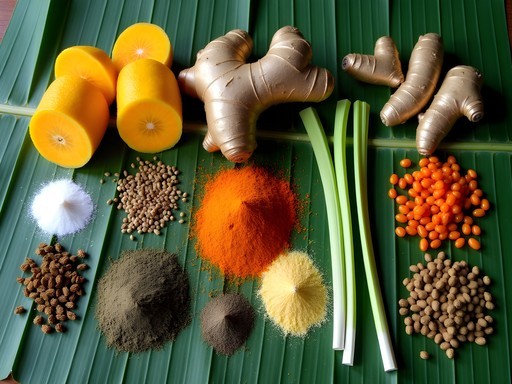







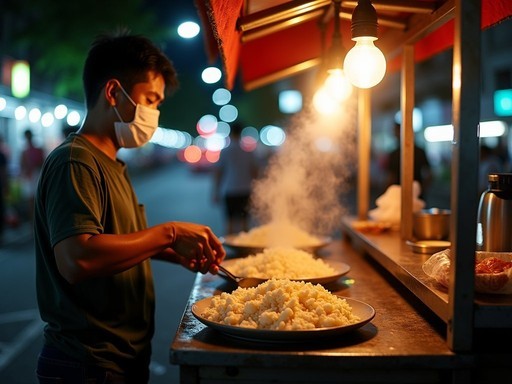
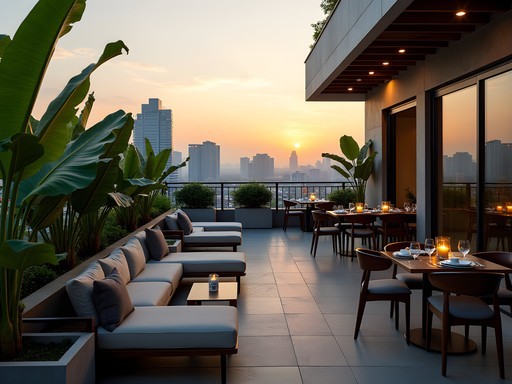
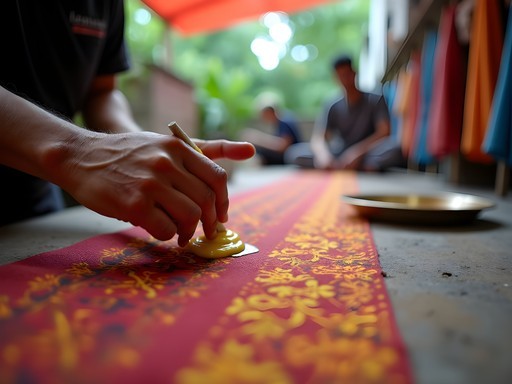
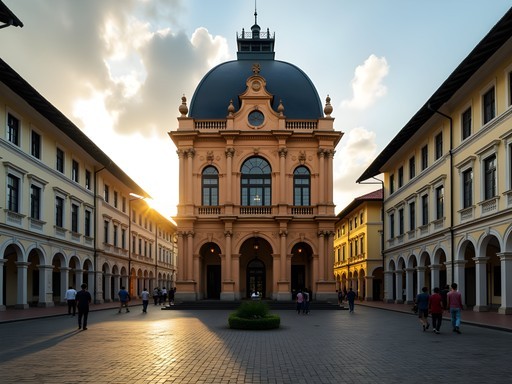
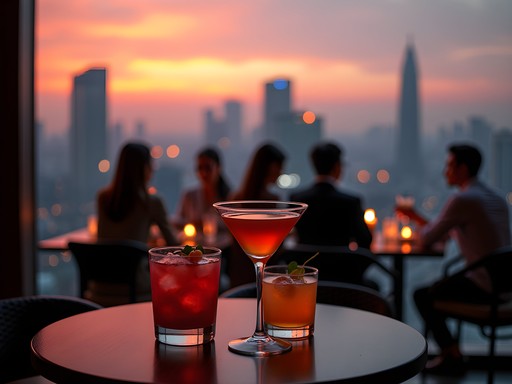
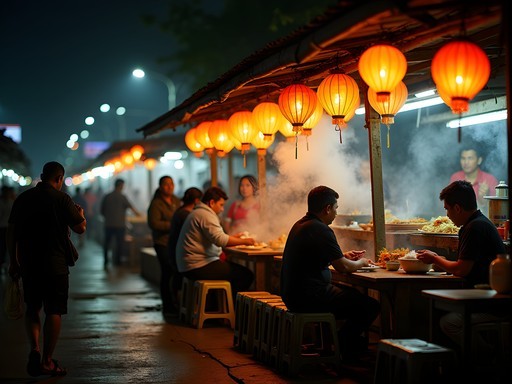
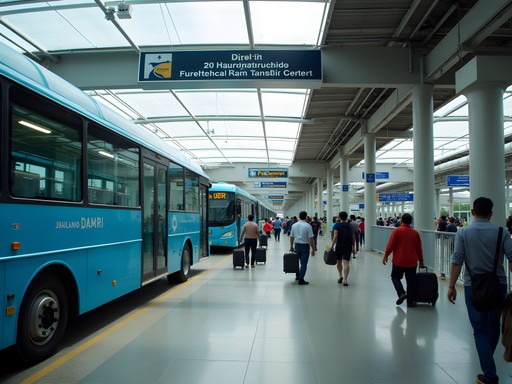

Comments
globebackpacker
Just got back from Jakarta and tried the Jamu brewing workshop mentioned here - absolutely fascinating experience! The instructor showed us how to identify different roots and herbs at the market before we made our own concoctions. Fair warning though: some of these traditional remedies taste INTENSE! The turmeric-tamarind one nearly blew my head off, but I've been feeling amazing since. Also stumbled across a batik workshop in Kota Tua that wasn't mentioned here but was equally fantastic - the patience required is unreal! Thanks for this list Sage, it helped me see a completely different side of Jakarta beyond the usual tourist spots.
winterbackpacker
Great post! Anyone know if these workshops are suitable for someone who doesn't speak Indonesian? My Bahasa is basically nonexistent 😅
Hunter Thompson
Most of the cultural centers in Jakarta offer English instruction or at least have someone who can translate! I brought my pocket translator which was super helpful for the smaller workshops, but the touristy ones definitely cater to English speakers.
winterbackpacker
That's reassuring, thanks! I've been learning some basic phrases but nowhere near conversation level yet.
waveseeker
Are these workshops available year-round? Planning a trip in November and would love to try the shadow puppetry one!
Sage Dixon
Hey waveseeker! Yes, most run year-round, though the Wayang Kulit workshop at Museum Wayang sometimes has special themed sessions during cultural festivals. November should be perfect timing - check their website about 2 weeks before your trip as they sometimes update their schedule.
waveseeker
Perfect, thanks Sage! Can't wait to try it!
Hunter Thompson
Brilliant write-up, Sage! Jakarta's cultural scene is so underrated. I did the Pencak Silat workshop last year and it was mind-blowing - not just the physical movements but how the instructor explained the philosophical aspects behind each stance. The Jamu brewing sounds fascinating too. Did you find most of these workshops through local connections or are they advertised somewhere? I'm heading back in October and would love to try the Gamelan workshop this time around.
globebackpacker
Hunter, I did the Gamelan workshop last month! It's at Taman Mini Indonesia Indah - they do sessions every Saturday morning. Definitely book ahead though, it fills up quickly with local students.
Hunter Thompson
Thanks for the tip! Will definitely check that out. Did you need any musical background for it?
globebackpacker
None at all! They start super basic. I have zero musical talent and still had a blast!
WanderlustMama
Great article! Would any of these workshops be appropriate for kids (ages 8 and 11)?
Sage Dixon
Hi WanderlustMama! Yes, several of these are great for kids! The wayang kulit workshops often have family sessions where children can make simple puppets. The gamelan workshops are also very kid-friendly - the instructors are used to teaching beginners of all ages. Your 8 and 11-year-olds would probably enjoy both!
JakartaLover22
Love this! The gamelan workshop changed my life when I visited last year!
redhero
Was it hard to learn the instruments? I have zero musical talent lol
JakartaLover22
Not at all! They start you with super basic patterns. The instructor was so patient and by the end we were all playing together. It's more about feeling the rhythm than being technically perfect. You should definitely try it!
SunnyDayTripper
I did this too! Make sure to bring a portable fan - the workshop space got pretty warm when we were there in March!
Timothy Jenkins
Fantastic piece, Sage! I spent three weeks in Jakarta last year and completely missed the Pencak Silat workshops. The martial art's cultural significance is something I would have loved to explore. I did manage to attend a Wayang Kulit performance though - the shadow puppetry was mesmerizing, especially when the dalang explained how different characters represent moral archetypes. For anyone planning to visit, I'd recommend bringing a small notebook to jot down the stories as they unfold. The narratives are complex but incredibly rewarding to follow. Jakarta's cultural offerings truly go beyond the typical tourist trail!
redhero
Did you find it easy to get around to these workshops? I'm thinking about going solo and wondering about transportation.
Timothy Jenkins
Jakarta's traffic is notorious, but I found using GoJek (local ride-sharing app) really convenient for reaching cultural venues. For workshops in central areas, the TransJakarta bus system works well too. Just avoid rush hour if possible!
redhero
Thanks! Going to download that app before my trip. Is it safe for solo travelers?
Timothy Jenkins
Absolutely! I found Jakarta quite safe for solo travel. Just use common sense like in any big city. The cultural workshops usually attract a friendly mix of locals and tourists, so it's easy to connect with people too.
solo_nomad
Just did the Jamu workshop yesterday and it was incredible! My skin is already thanking me!
familytravels4fun
Are these workshops suitable for kids? I have a 9 and 11 year old who get bored easily but I'd love them to experience Indonesian culture.
Charlotte Watkins
Absolutely! My kids loved the shadow puppetry and gamelan workshops especially. Many places offer child-friendly versions where they can get hands-on right away. The instructors are used to working with families and keep things moving at a good pace.
familytravels4fun
That's perfect, thank you so much for the info!
backpack_adventures
Those shadow puppets look amazing! Adding this to my bucket list!
Venture X
Premium card with 2X miles, $300 travel credit, Priority Pass